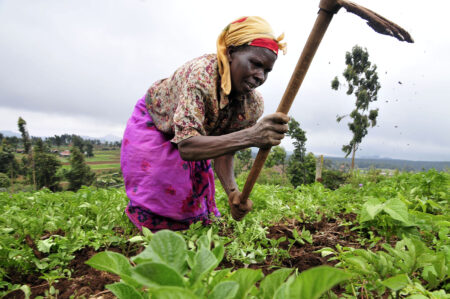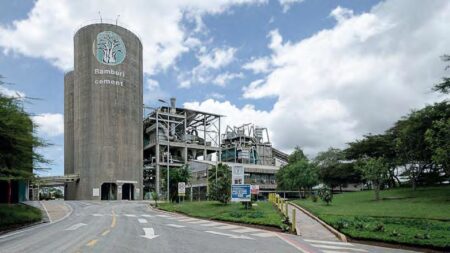
Tanzania: The government, through the Central Bank of Tanzania has successfully kept the economy not only afloat but reasonably expanding even in the face of the global pandemic. because monetary policy staving off effects of covid on the economy.
The Tanzania government has kept its resolve to keep the economy liquid by ensuring there is enough credit for the private sector. As reports the Central Bank, the government has maintained what it describes as an ‘accommodative monetary policy.’
Thanks to this ‘accommodative’ monetary policy, the government of Tanzania has managed to boost credit flows to the private sector and thus managed to support recovery of the economy from the adverse effects of COVID-19.
The monetary policy of Tanzania has been to increase supply of credit to the private sector by using several means including lowering minimum reserve rates at the Central Bank for commercial banks and on the other hand, having the latter lower its borrowing interest.
This approach, to increase money supply in the economy is referred to as the ‘extended broad money supply (M3)’ and for the year ending November 2021, Tanzania’s M3 grew by 14.9 percent compared to 5.2 percent in November 2020.
Similarly, the previous round of money supply, ‘broad money supply (M2)’ also registered an annual growth of 17.2 percent, up from 8.7 percent.
As a result of M2 and M3 money supply increase policies, “Domestic credit by the banking system, extended to the private sector and central government, grew at an annual rate of 13.5 percent in November 2021, compared with 12.5 percent in November 2020,” reports the Bank of Tanzania (BoT).
The BoT also reports that, credit extended to the private sector continued to recover, growing by 7.8 percent compared to a growth of 5.6 percent in the preceding month and 5.2 percent in the corresponding period of 2020.
In this regard, to ensure the private sector has access to cash supply, as of November 2021, commercial banks’ interest rates charged on loans declined, meaning the private sector has access to more financing at lower borrowing rates.
“Overall lending rates averaged at 16.40 percent, decreasing from 16.65 percent and 16.61 percent recorded in the preceding month and November 2020, respectively,” reads the report in part.
Increased Public Spending Staving Off Covid Effects On Economy
Other than the direct monetary policy taken to increase money supply in the economy, the government of Tanzania has also increased its public spending. The government has done this by financing several major infrastructure projects.
By so doing, the government is not only creating jobs and investment opportunities, but also in directly increasing the circulation of money in the economy.
Thanks to this accommodating approach, the Central Bank is confident that, “…growth of credit to the private sector is expected to continue to maintain an upward trend towards the target of 10.6 percent set for 2021/22.”
In its most recent Monthly Economic Review report, the Central Bank of Tanzania explains that the growth of credit to the private sector has been more prominent in personal activities, largely small and medium enterprises, followed by trade, manufacturing and agriculture.
Owing to this promising and so far successful Monetary policy (backed with Fiscal policies) the African Development Bank (AfDB) has very promising outlook for Tanzania’s economic growth in 2022.
According to the AfDB, Tanzania’s economy may expand by as much as 5.2 percent this year. However, we cannot ignore the fact that the AfDB report is in stark contrast to the one issued by the World Bank last year.
The World Bank economic outlook cautioned that Tanzania’s economy may suffer a slowdown and slump as bad as 2.5 percent down from last year’s high of 6.4 percent. The World Bank predictions may be overturned by the effect of the monetary policies that are helping the economy stay liquidated along with Fiscal policies that are increasing public spending and attracting Foreign Direct Investment (FDI).
With increased government spending then we can expect that there will be an increased circulation of funds which will help sustain economic activities. The related multiplier effect of the increased public spending will also support overall welfare of the community.
It should also be noted that the government of Tanzania has also received a considerable amount in Covid-19 stimulus package to help the country recover from the negative economic effects of the global pandemic.
For example, in Zanzibar, President Dr. Hussein Mwinyi recently announced a US$200 million stimulus package that is extended to the isle to catalyze Zanzibar’s economic recovery from the Covid-19 slow down.
At the close of the year, Tanzania was reported to be in urgent need of financial support of $1.1 billion to mitigate the effects of the novel coronavirus disease (COVID-19) pandemic.
The needed $1.1 billion is equivalent to 1.5 per cent of Tanzania’s total annual gross domestic product. In the International Monetary Fund (IMF), report published late last year (Sept 17, 2021) Tanzania’s current account deficit is expected to widen to 4.5 per cent of the country’s GDP as of 2022 due to continued COVID-19 economic shock waves.
“Tanzania’s current account balance deteriorated in 2020-21, mainly because of the collapse in tourism receipts that declined by about 55 per cent in the fiscal year,” reads the report in part.
Following that announcement, the IMF approved US$567.25 million in emergency financial to Tanzania. The funding was issued under the Rapid Credit Facility and Rapid Financing Instrument to support Tanzania in its efforts to respond to the pandemic .
“The resources are also expected to play a catalytic role in their efforts to mobilize additional support from development partners,” reads the IMF report.
Owing to the devastating effects of Covid 19 to the economy, it is reported that Tanzania’s export of traditional goods, particularly cash crops like coffee, cotton and tobacco fell by almost half of their average annual levels severely affecting the country’s economy.
Exports of traditional goods are estimated to have declined by around 40 per cent due to weak external demand and lower global prices reads the report. As a result, business slowed across a wide range of sectors and firms, and as pointed out, it is export-oriented sectors such as tourism and manufacturing that suffered the most.
As we enter the new year, the country can best rely on favourable monetary and fiscal policies but that is not all, Tanzania needs to make the best of Covid-19 stimulus packages in grants and loans as offered by international donors and development partners is the country is to grow its economy.











